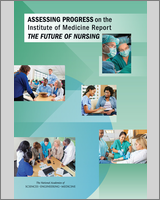From: 3, Achieving Higher Levels of Education

NCBI Bookshelf. A service of the National Library of Medicine, National Institutes of Health.
Entry-level baccalaureate programs prepare individuals who are not already licensed registered nurses (RNs) to enter the profession with a baccalaureate degree and become licensed to practice nursing upon completion. Many entry-level baccalaureate enrollees do not have another undergraduate degree in a non-nursing field. These programs also may be referred to as generic baccalaureate or entry-level or generic bachelor of science in nursing (BSN) programs.
Accelerated baccalaureate programs are prelicensure programs that allow individuals who hold an undergraduate degree in a non-nursing field to complete a baccalaureate in nursing in less time than would be required to complete an entry-level baccalaureate. These programs also may be referred to as second-degree bachelor's programs.
Baccalaureate completion programs are postlicensure programs that provide a pathway for individuals who already have a diploma or associate's degree in nursing and are already licensed RNs to complete their baccalaureate education in nursing. These programs also may be referred to as RN-to-baccalaureate, RN-to-BSN, or associate's degree in nursing (ADN)-to-BSN programs.
From: 3, Achieving Higher Levels of Education

NCBI Bookshelf. A service of the National Library of Medicine, National Institutes of Health.